Best wasp repellent plants – 10 plants to naturally deter these insects from your yard
These wasp repellent plants will naturally keep them at bay and allow you to enjoy your backyard in peace

Tenielle Jordison
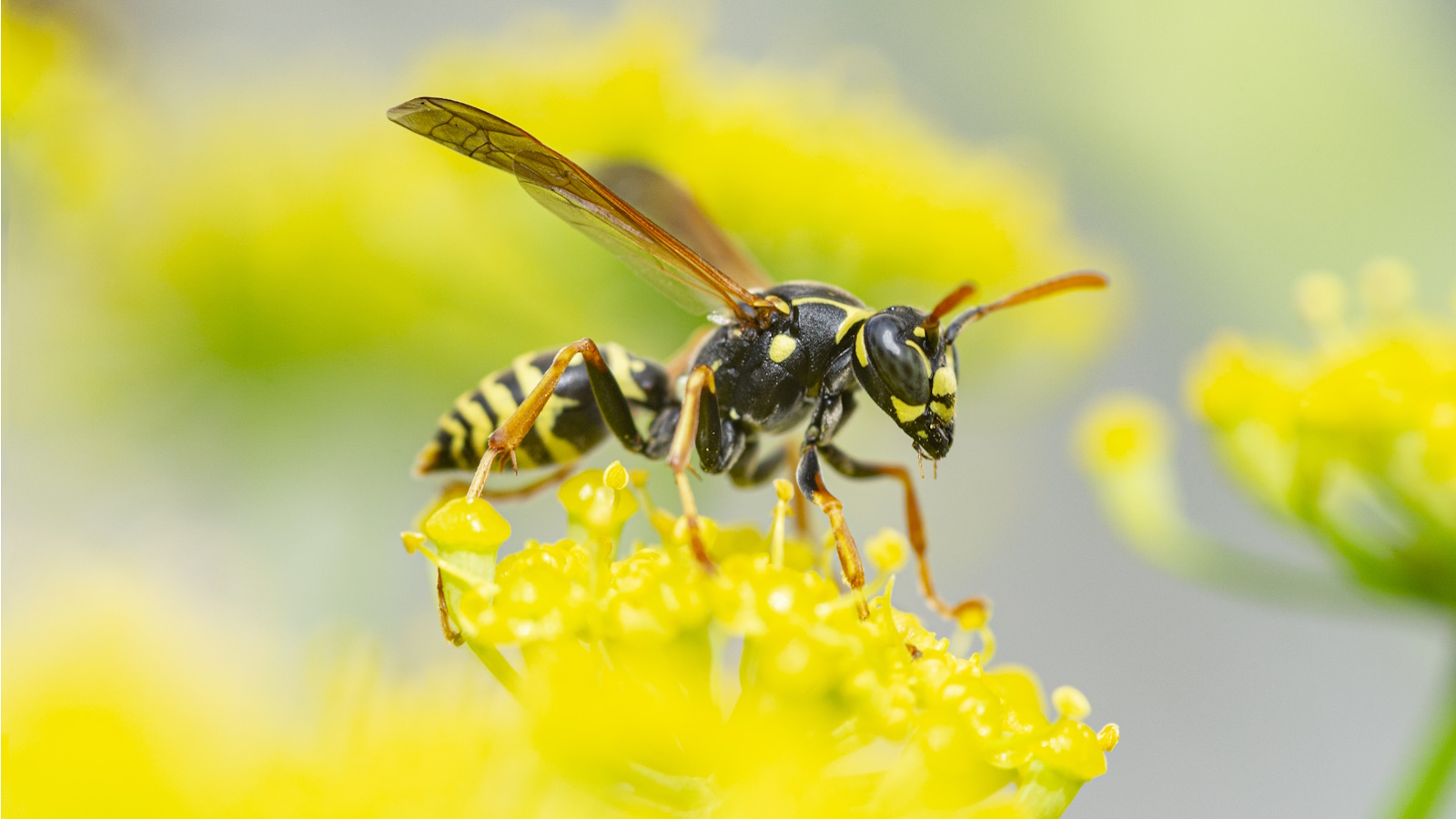
Design expertise in your inbox – from inspiring decorating ideas and beautiful celebrity homes to practical gardening advice and shopping round-ups.
You are now subscribed
Your newsletter sign-up was successful
Want to add more newsletters?

Twice a week
Homes&Gardens
The ultimate interior design resource from the world's leading experts - discover inspiring decorating ideas, color scheming know-how, garden inspiration and shopping expertise.

Once a week
In The Loop from Next In Design
Members of the Next in Design Circle will receive In the Loop, our weekly email filled with trade news, names to know and spotlight moments. Together we’re building a brighter design future.

Twice a week
Cucina
Whether you’re passionate about hosting exquisite dinners, experimenting with culinary trends, or perfecting your kitchen's design with timeless elegance and innovative functionality, this newsletter is here to inspire
If you have a wasp problem in your backyard, it can be a good idea to plant wasp repellent plants. This simple but effective method helps keep these pests at bay while also adding spectacular color to your yard. Their strong fragrance is effective in deterring these insects.
From cheerful marigolds, and chic eucalyptus to creeping pennyroyal, many of these are everyday garden plants and useful herbs. Perfect for adding flavor to dishes, drinks, and healing remedies, they can prove hugely beneficial to us and highly deserving of a prime place in our backyards, plus they're great for getting rid of wasps.
Whether you want to add them to your flower beds and containers or want to keep wasps away from your porch, we've compiled an expert list of the best wasp repellent plants for you to create a wasp-free zone.
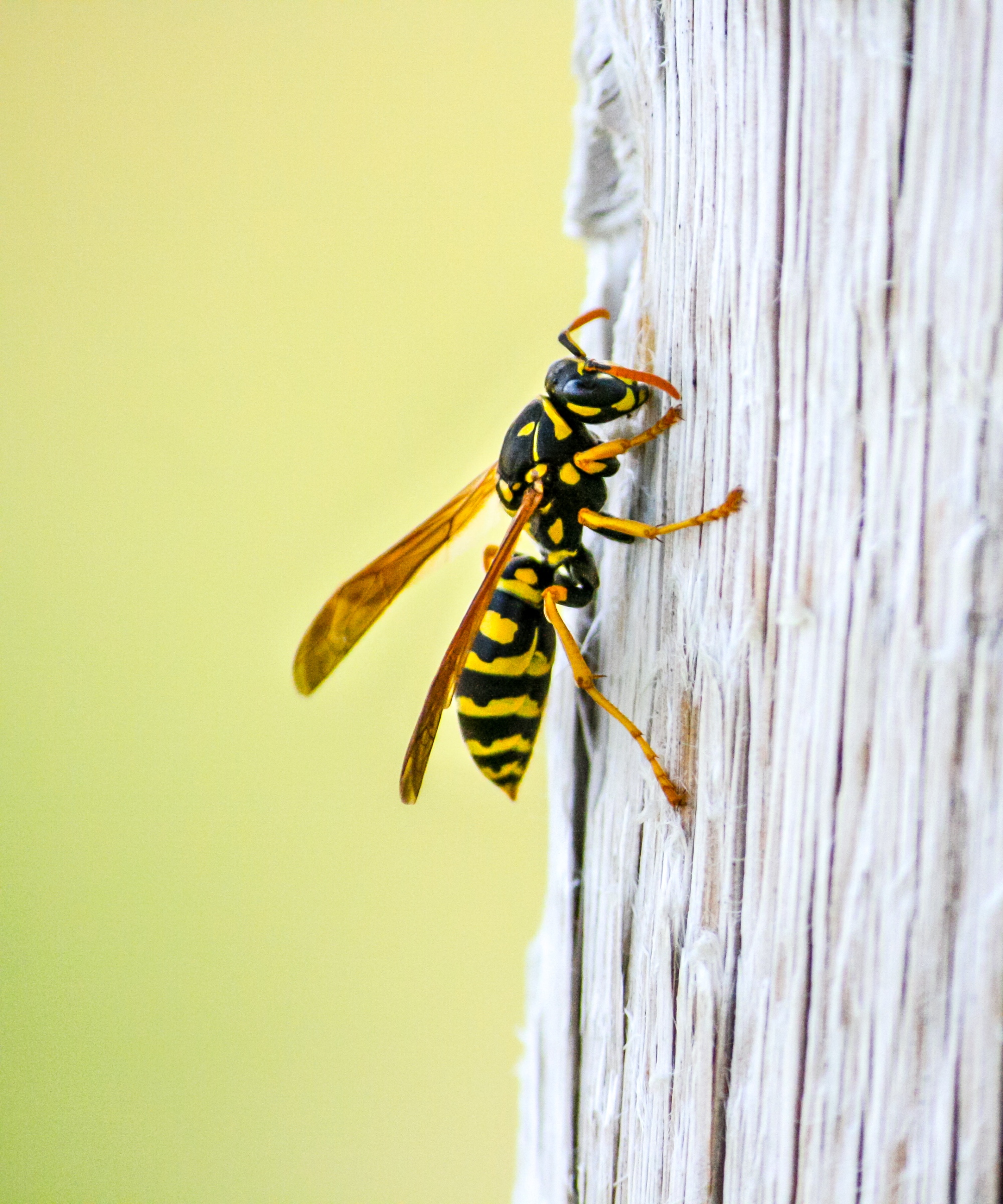
10 wasp repellent plants
Harness the natural power and beauty of these wasp repellent plants so you can sit back and relax undisturbed in your yard this summer.
1. Wormwood
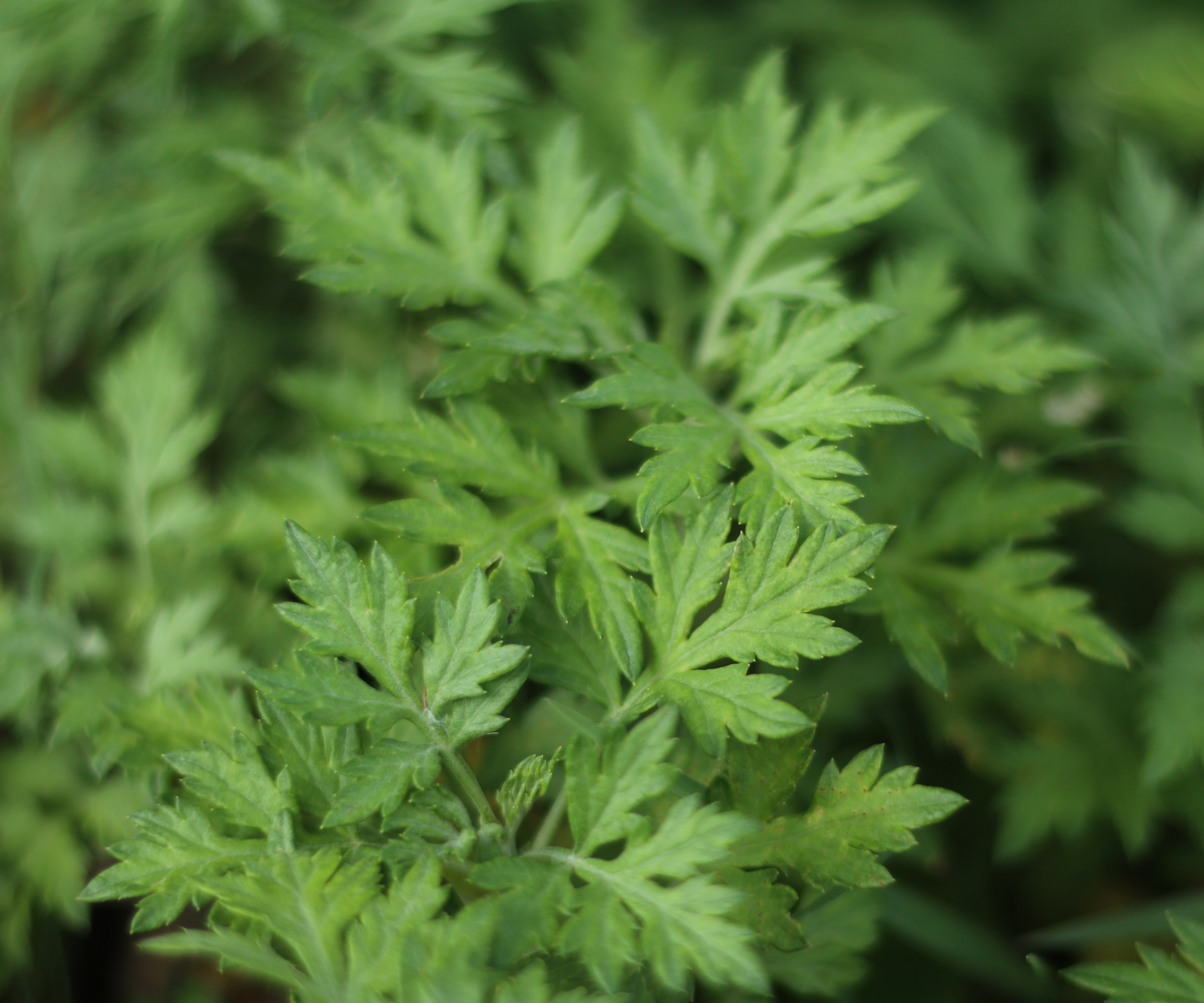
The charm of wormwood or Artemisia may appear to lie in its fine silver, feathery foliage but did you know that wasps simply can’t stand its astringent scent?
Easy and quick to grow in a sunny, well-draining spot, it’s perfect for surrounding your deck or adding to your container garden.
Reaching heights of around 2ft and with a spread of 3ft, this hardy perennial forms attractive mounds. It can lose leaves over winter during particularly cold spells but will shoot again the following spring.
Design expertise in your inbox – from inspiring decorating ideas and beautiful celebrity homes to practical gardening advice and shopping round-ups.
Parts of the plant have been used to create the liquor Absinthe but is more commonly known for treating various digestive problems.
Wormwood grows best in US hardiness zone 4 to zone 9 and you can buy it online from a range of suppliers, like this wormwood plant from Walmart.
2. Mint and spearmint
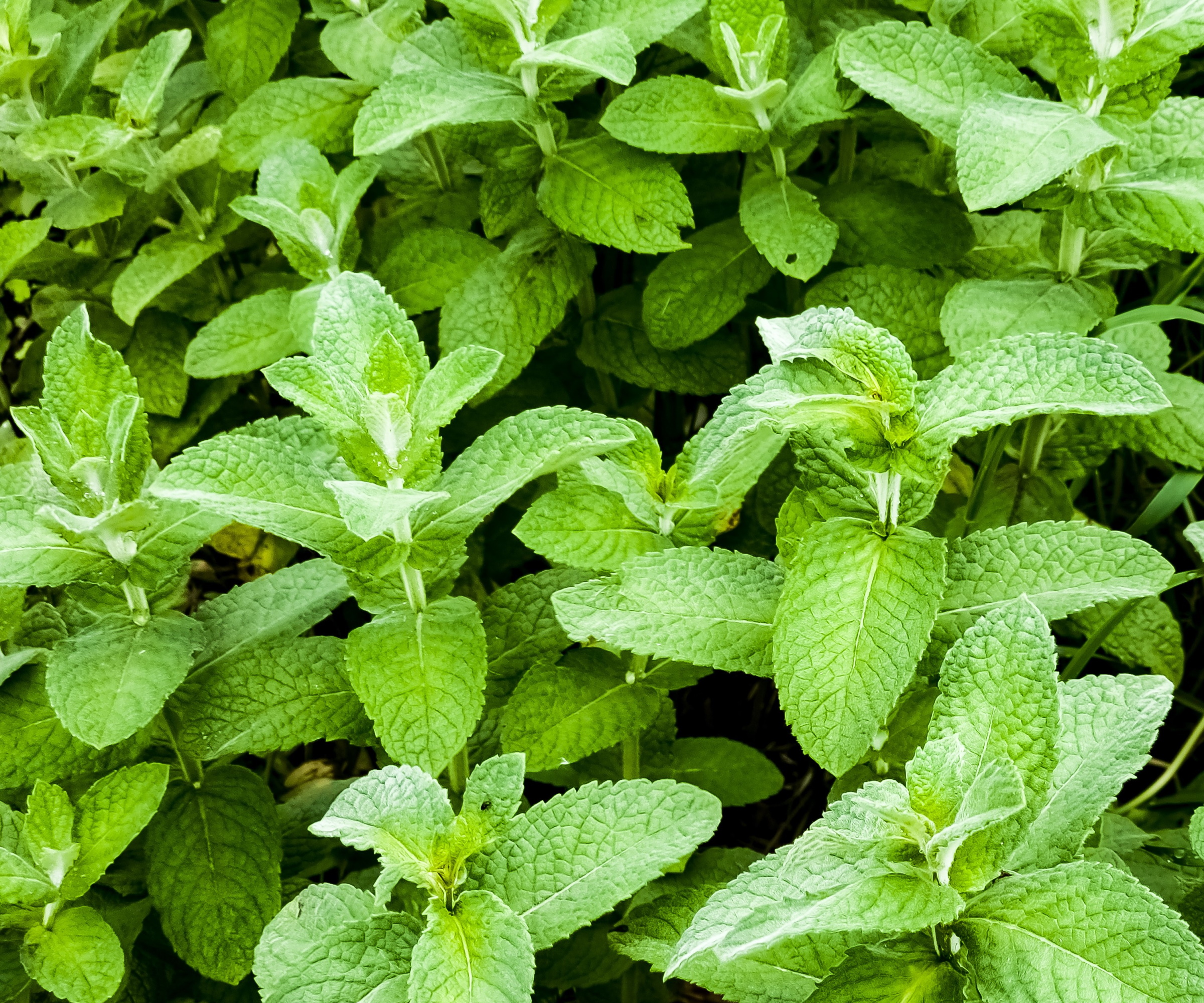
Adored by most but hated by wasps, the heady fragrance of fresh mint varieties is hard to beat for sheer summer charm.
Sun and part shade plants, there are many different varieties to grow, each with its own subtle flavor and characteristics. Peppermint and spearmint are two of the strongest mints so are well worth growing to keep wasps at bay.
These herbs will shoot in spring, to reach around 3ft before dying back to ground level in fall.
One word of warning from the expert gardening team at Crocus, ‘Initially upright, the stems become lax as they grow, and begin to root where they touch the ground, so in time large clumps will be formed. If you prefer to keep them under control, it is best to grow mint in large pots or containers.’
'You can use either a mint plant or even mint-scented items such as peppermint essential oils,' says Rocky Beninato, pest control expert and founder at Quality Affordable Pest Control. 'If using the latter, be careful what plants you spray it on, as peppermint can cause damage to other herbs. I would recommend diluting any essential oils before using them in the garden,' he adds.
Most varieties thrive in US hardiness zone 3 to zone 8 and you can buy mint plants online like these mint plants from Walmart.
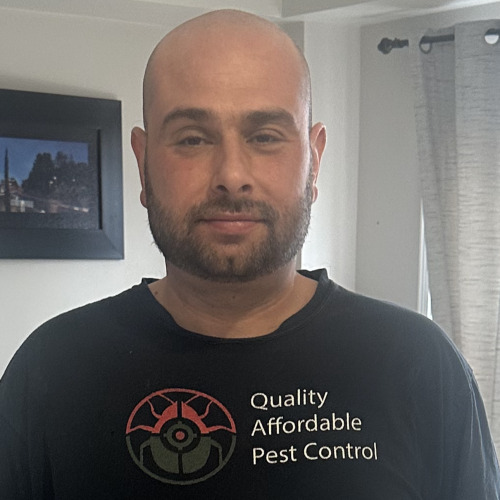
Rocky is the founder and certified exterminator at Quality Affordable Pest Control based in Toronto and the surrounding areas.
3. Common thyme
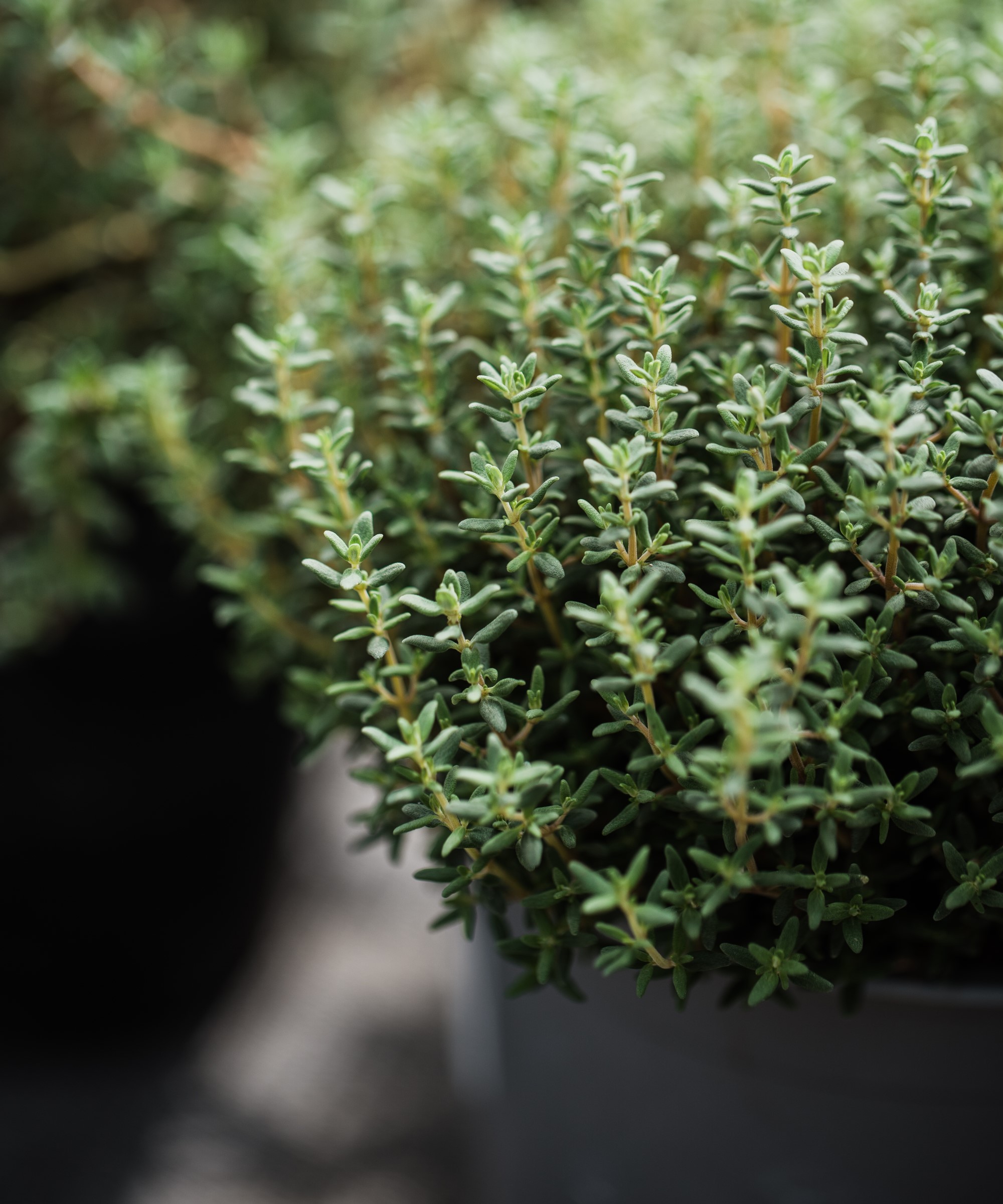
It’s hard to believe that the ground-hugging, billowy cushions of thyme are disliked by wasps.
Covered in a mass of tiny white, pink or purple flowers during late spring and summer, this hardy aromatic herb is happy growing in most sunny positions with well-drained soil.
Most types of thyme – of which there are over 300 varieties – are happy in US hardiness zone 5 to zone 9 but they do dislike wet and humid environments. Growing thyme in containers is a great way to keep them happy, and near to areas that wasps are attracted to.
It’s also worth knowing that the strongest flavor and scent is held in the young, fresh leaves. So, for the most reliable wasp deterrent, reach for the shears and snip off any old, leggy growth.
Find thyme plants online, like this thyme plant from Nature Hills.
4. Marigold
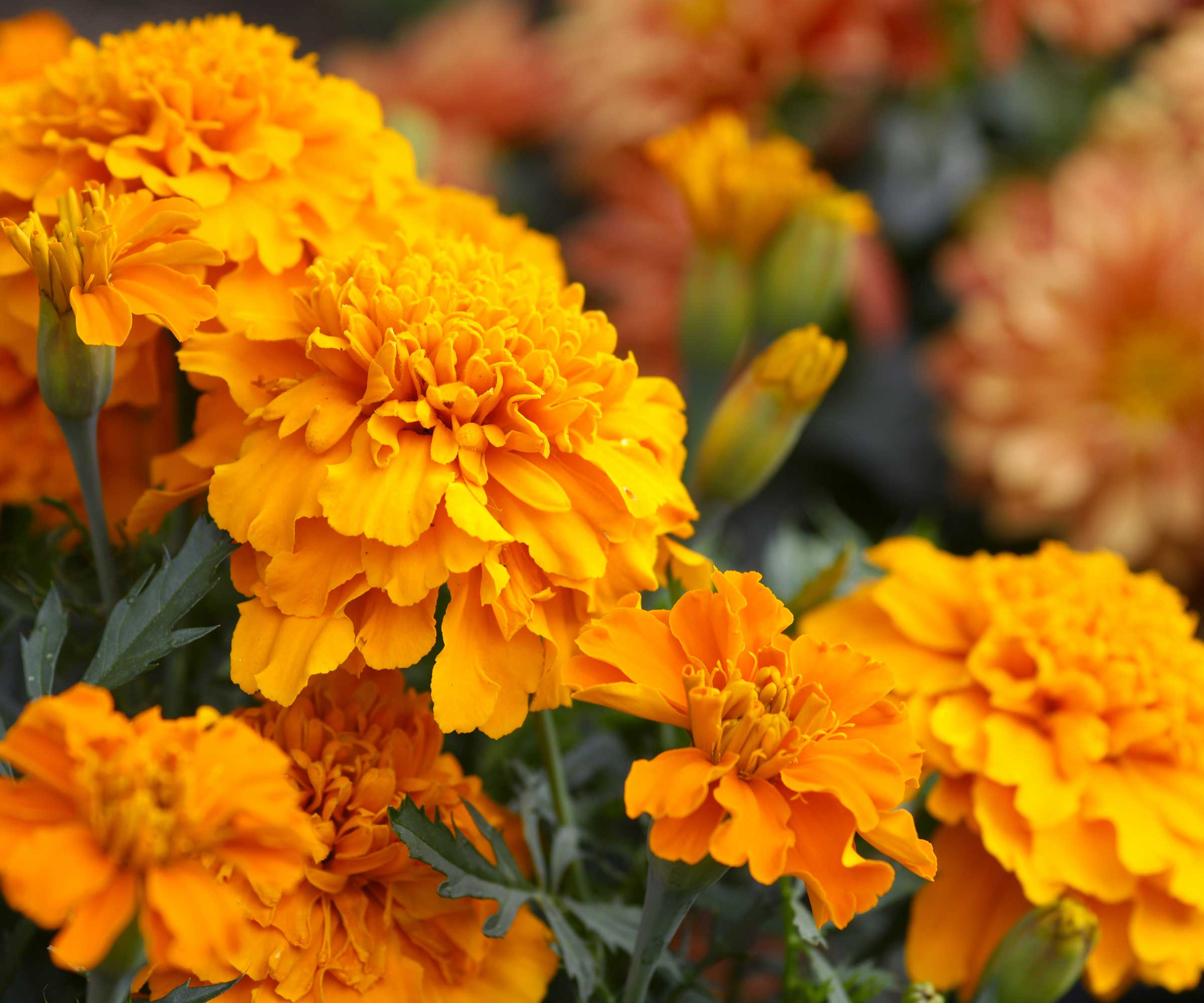
Both French and American marigolds possess a strong spicy scent that keeps wasps well away. This is why many choose to plant marigolds in a vegetable garden to protect crops.
'Marigolds produce a distinctive smell which many pests find repulsive. Planting marigolds around your home and garden can serve as a protective barrier,' pest control expert and entomologist David Price.
Together with their bold orange-red blooms and reliable nature, they need very little attention and are ideal for planting around borders and crops that are also vulnerable to pests and aphids.
A tender annual, these readily available plants are happiest in the sun and will thrive during the warmer months across US hardiness zones 2 to zone 11. You can grow marigolds from seed and keep them flowering – and repelling wasps – for longer by deadheading marigolds regularly.
Grow marigolds at home using this marigold grow kit from Nature Hills.

David Price is the Entomologist and Technical Director at Mosquito Joe. David is responsible for developing technical expertise, researching and introducing new product lines and services, training current and new service personnel, and ensuring quality service in field operation practices throughout the Mosquito Joe system.
5. Eucalyptus
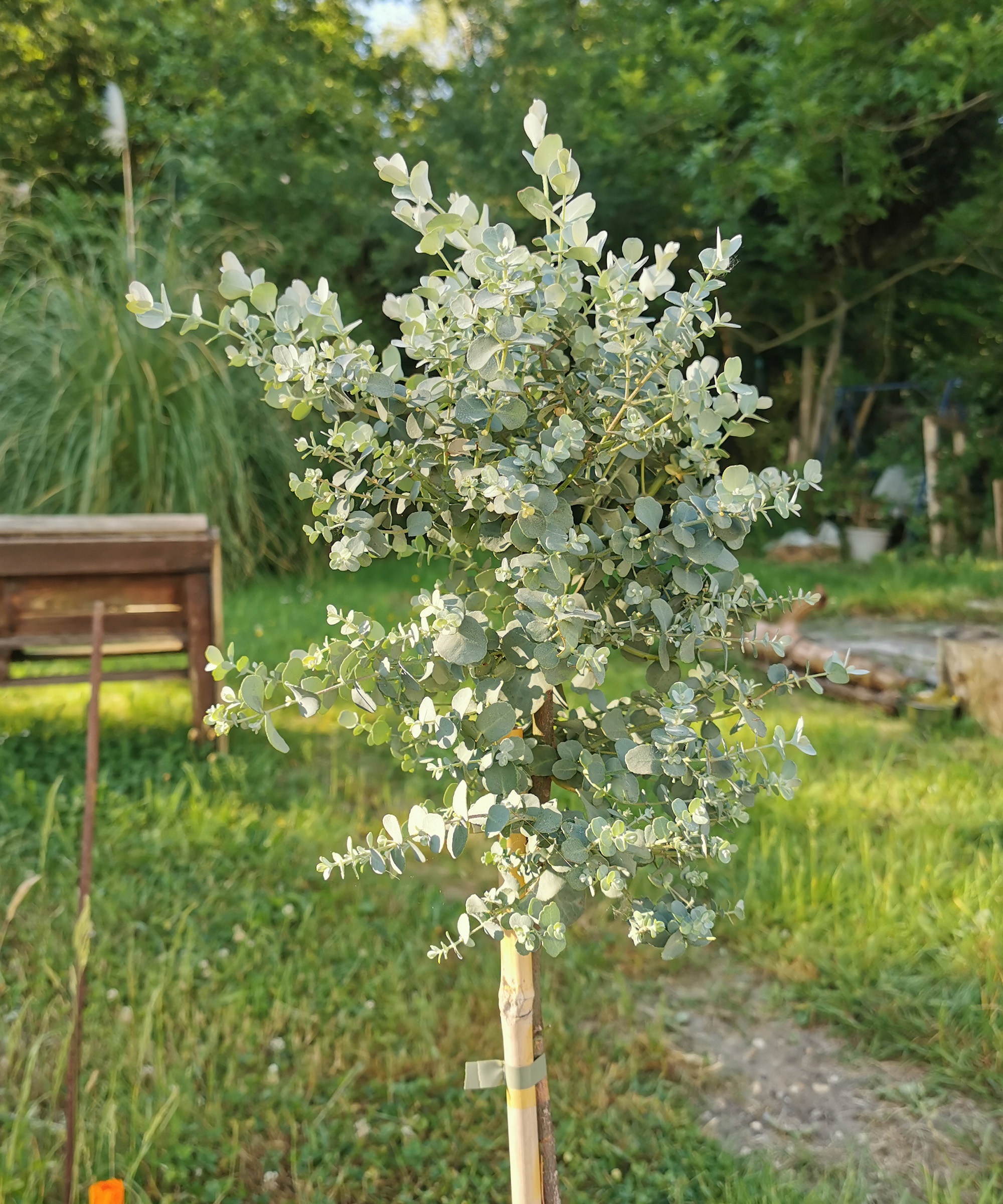
Rub or crumble a silvery eucalyptus leaf and you can’t fail to notice the immediate heady burst of menthol. Often used as a decongestant, it’s these powerful essential oils that also keep wasps and many other insects away. Cut branches of eucalyptus can keep insects out of the house, too.
An Australian native, these trees love their roots in free draining but rich or poor soil and their heads in the sun. They do grow large – in excess of 40ft – and quickly too – up to 3ft in a year while they are young - making them one of the best fast-growing trees for privacy. You can prune eucalyptus hard to reduce their size and promote fresh, fragrant growth. They are also successful in containers.
Choose one that is at least 2ft in diameter and be prepared to upsize in a few years. If planting directly in the ground the gardening experts at the RHS do advise, ‘With larger-growing species, plant them well away from buildings, as they can dry out the soil, especially heavy clay.’
Grow eucalyptus from seed with these eucalyptus seeds from Walmart.
6. Geranium
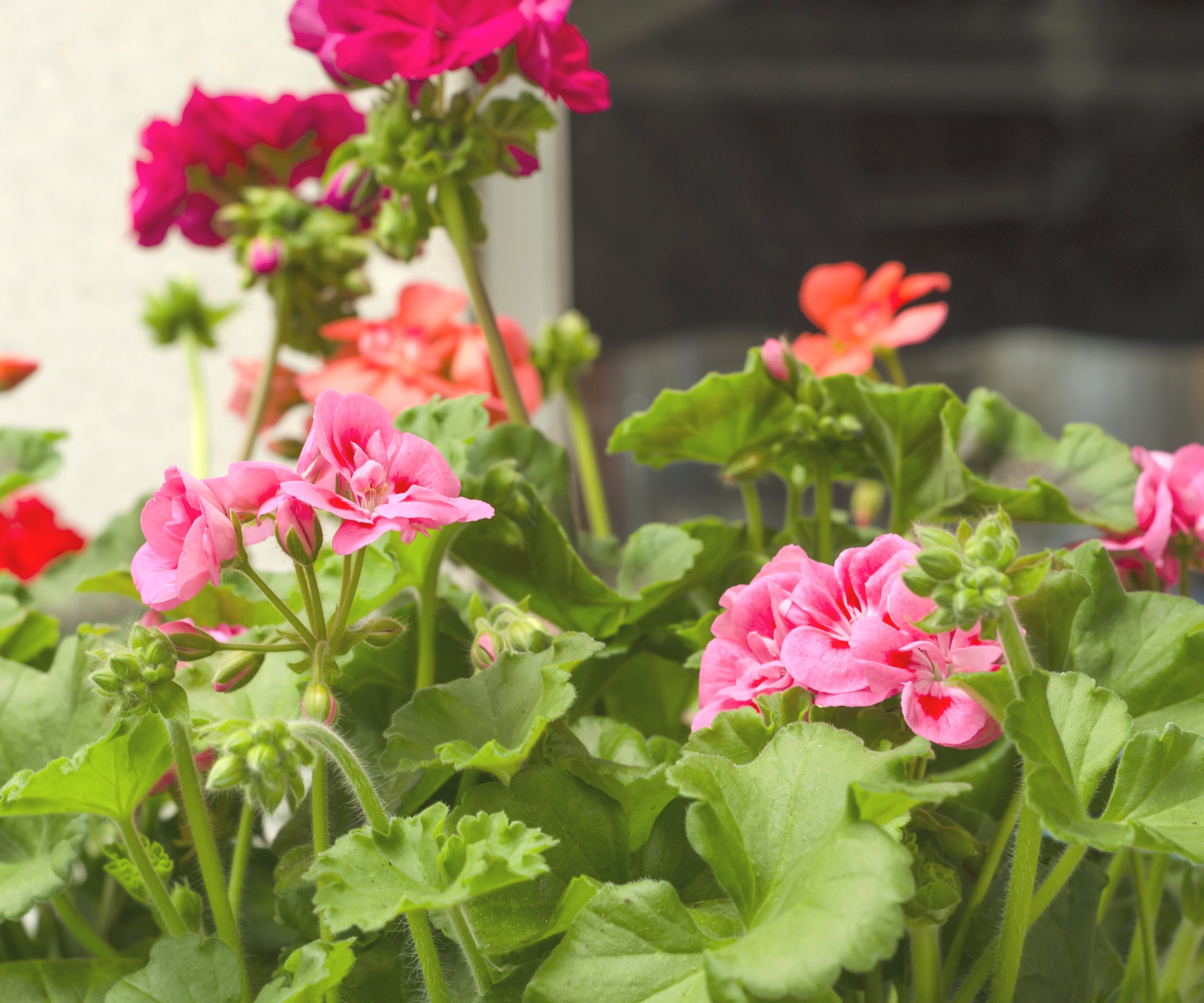
Ever noticed that beautiful scented ivy-leaf geraniums have an instantly recognizable smell? Known for its energizing effect, the unmistakable fragrance is released as soon as leaves are brushed past or when in a particularly warm and sunny spot.
Wasps with their super sensitive sense of smell simply can’t abide by geranium varieties and according to the Experimental Perfume Club, this is likely due to the chemicals in the oil. ‘The well-known molecules found within geranium oil are citronellol, nerol, geraniol and linalool – many molecules shared with rose and which explains why they carry a similar scent profile,' experts say.
Grown as half-hardy annuals in zone 9 and below, these plants will flower endlessly throughout the summer months and can be seen in wall-hung pots, hanging containers and cascading out of window boxes. Deadhead regularly to keep geraniums blooming and learn how to overwinter geraniums to enjoy them again next year.
There are lots of geraniums to choose from, like this Rozanne Geranium from Nature Hills.
7. Lemongrass

Lucky enough to live in US hardiness zone 9 to zone 11, or warmer climes? Then you can add growing lemongrass to your list of wasp repellent plants.
'Lemongrass contains citronella oil which is a great insect repellent,' says Nicole Carpenter pest control expert and President of Black Pest Prevention.
Coming from the sunshine, humidity and warmth of Sri Lanka and southern India this tropical plant has a reviving citrus fragrance that is guaranteed to keep wasps well away. In these zones, you can leave lemongrass in the ground all year round – just adding a little mulch for protection in zone 9.
If you live in zone 8 or below, and you are still keen to give this plant a go, then you will have to lift and store the plant indoors over winter.
Buy lemongrass plants online, like this lemongrass plant from Walmart.

Nicole Carpenter started working at Black Pest Prevention when she was in high school. She continued working there while attending N.C. State University and is now the President. She advises on pest control in backyards and helps with pest control in Charlotte and serves both North and South Carolina.
8. Basil
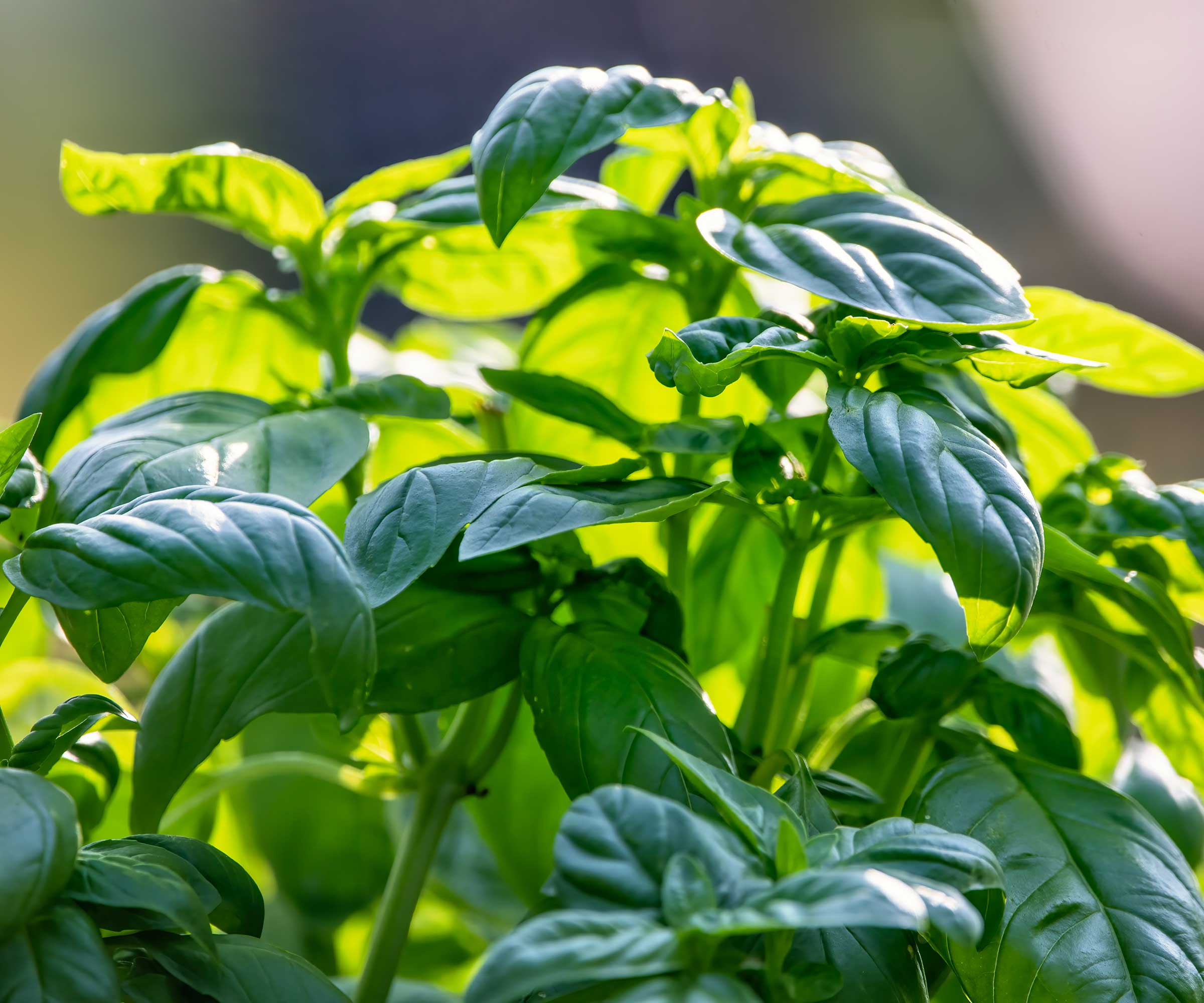
‘As humans, we may enjoy the aroma of basil in a rich tomato sauce, but bees and wasps are put off by the fragrance,’ says Ehrlich Pest Control.
You can grow basil from seed, indoors and out across US hardiness zone 3 to zone 11, like with these basil seeds from Amazon. For best results, sow seeds at regular intervals throughout spring and summer.
Basil requires constant heat to grow and dislikes sitting in wet compost, where if left it will quickly rot. The soft and tasty leaves also scorch very easily so make sure your crop is positioned out of direct sun.
Harvest individual leaves by picking them off, rather than snipping several plants with scissors, as this will promote fresh, new growth. And learn how to prune basil at the right time to prolong its life.
9. Pennyroyal
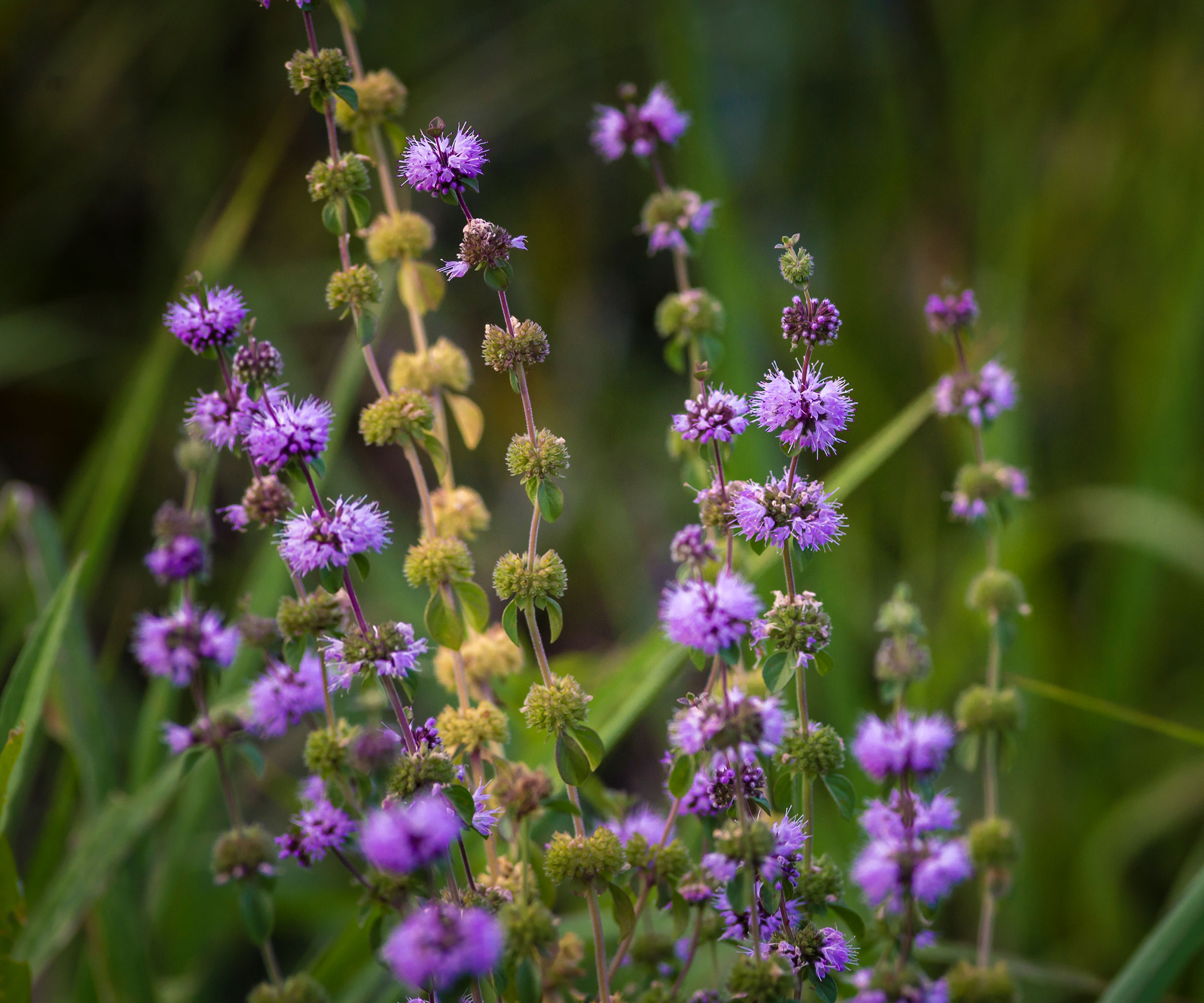
This vigorous and mat-forming plant gives off a strong mentha scent that, when crushed, wasps and many other insects, just can’t stand. Covered with distinctive whorls of lilac in mid-summer it thrives in poor soil and moist conditions but does have the habit of spreading relentlessly. It remains hardy down to 5 to -4℉ and does best in US hardiness zone 6 to zone 9.
There are two main types to choose from: European and American Pennyroyal, with the former having the stronger perfume. You can also rub crushed leaves on bug bites to help with irritation.
Find pennyroyal seeds online, like these pennyroyal seeds from Walmart.
10. Citronella
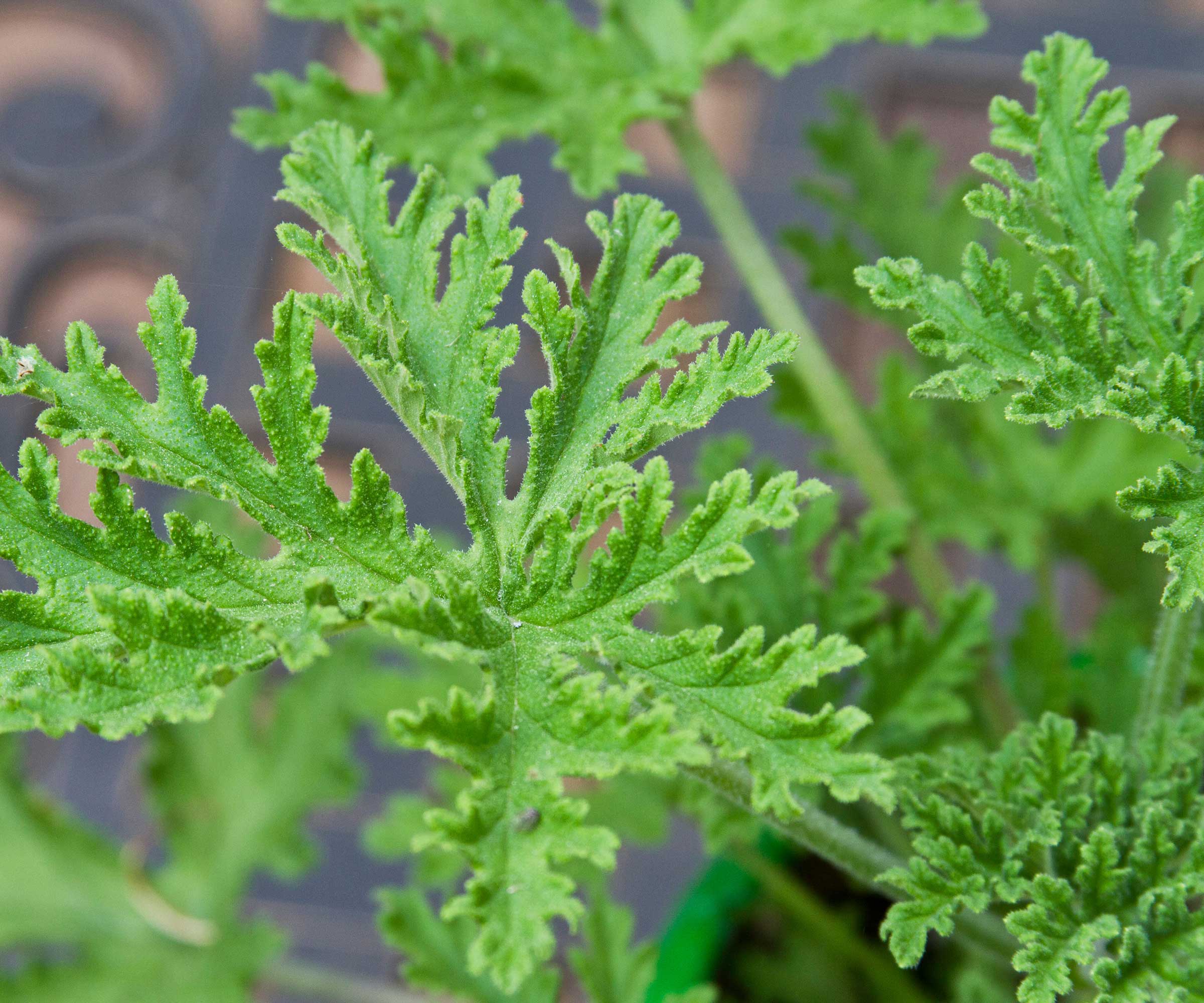
Largely known as an insect-repelling candle or oil, citronella is a scented pelargonium with rather attractive pink-purple flowers.
An evergreen, large branching shrub it reaches heights of 5ft and has tooth-edged foliage that smells strongly of lemon.
Hardy in US hardiness zones 8 through 12, it requires well-draining soil, and full sun and thrives happily in open borders and planters.
You should also consider growing citronella if you have other pests, as citronella can repel mosquitoes.
Shop for citronella plants online, like these citronella plants from Walmart.
FAQs
How do I wasp-proof my patio?
Discover some of the aromatic and flowering plants wasps dislike and enjoy growing them around your outdoor living room. Some of the best plants for hanging baskets and wall top planters can repel wasps: from tumbling ivy to scented leaf geraniums – those with red blooms are meant to be particularly effective. Pots of aromatic herbs – think thyme, basil and mint are ideal for lining up to make a barrier around your patio. You can also use wasp traps on your patio to capture them, like this wasp trap from Amazon.
Wasps are naturally deterred by fragrant plants and choosing to incorporate them in your yard will help create a wasp-free zone.
If you are struggling with other pests, explore our expert guide to the best pest-repellent plants, and make sure before tackling anything to do with wasps, you have compared hornets vs. wasps and are aware of the differences.

Journalist Jill Morgan has spent over 20 years writing and editing gardening, interior and property features. Titles she has worked on include The English Home, House Beautiful, Ideal Home, Houzz and Modern Gardens and she writes regularly for H&G as a Contributing Editor. Whilst she is a dab hand at renovation projects and DIY, she is happiest when out digging in the garden or planning a new border.
- Tenielle JordisonGardens Content Editor